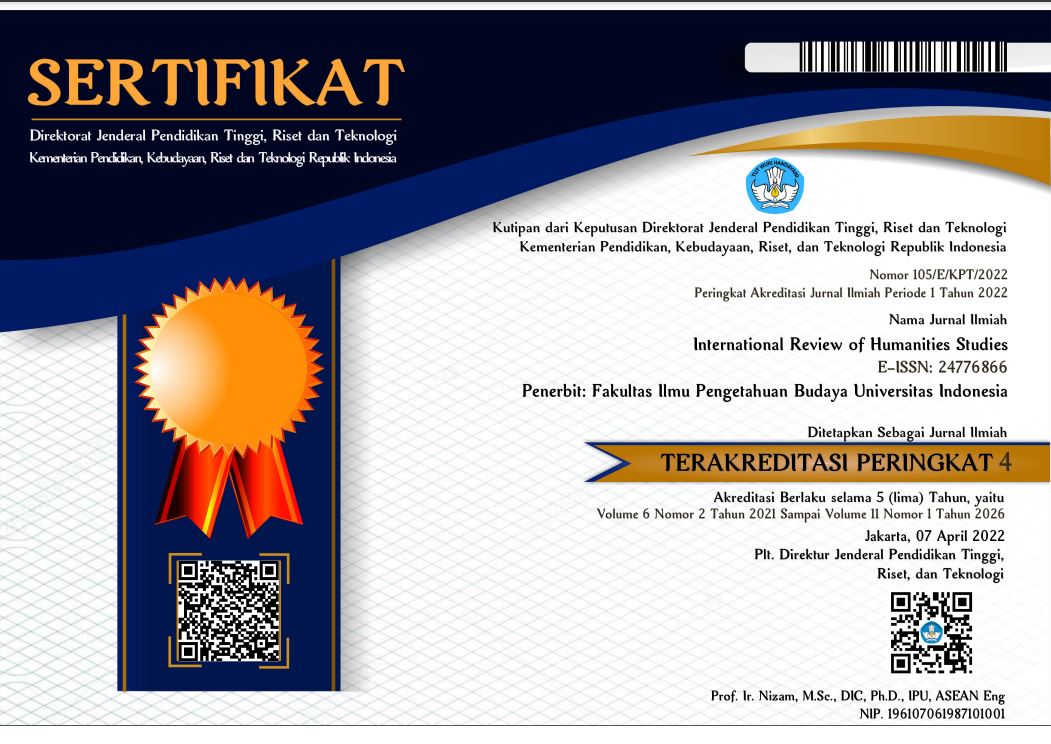International Review of Humanities Studies

Abstract
This research aims to show that the leadership of Sultan Muhammad Salahuddin is guided by the concept of Nggusu Waru or octagon so that the Bima Sultanate becomes a just and prosperous empire. This concept is the leadership philosophy of the Bima people which is still passed down from generation to generation orally, has become a guideline, and has existed since the kingdom era. The objects in this research are documents about Sultan Muhammad Salahuddin in the period 1938-1950 and interviews with local traditional elders. This type of research is ethnohistory using a descriptive approach. Ethnohistory is considered quite representative in the description of this research because it can examine cultural patterns and participants' perspectives in natural settings. The results showed that Sultan Muhammad Salahuddin was a sultan who was religious and had high concern for the people. It is not surprising that later he was nicknamed Rumata ma kakidi agama or sultan who upholds religion, a wise sultan who pays attention to the people and sides with the poor. The Sultan provided scholarships to Mecca, Medina, Yemen and other countries, established schools in each district, and protected his people, especially the dignity of women. During the Japanese occupation of Indonesia, the sultan issued a nika baronta policy or mass marriage of Bima girls so they would not be made into comfort women or slaves to the lust of the Japanese army.
References
Ankersmith, F. R. (1987). Refleksi tentang Sejarah: Pendapat-pendaoat Modern tentang Filsafat Sejarah pen. Dick Hartoko. Gramedia.
Bertrand, R. (2007). Sejarah Filsafat Barat. Pustaka Belajar.
Cresswell, J. (2015). Riset Pendidikan. Perencanaan, Pelaksana dan Evaluasi. Riset Kualitatif dan Kuantitatif. edisi kelima. Pustaka Pelajar.
Hamzah, A. (2020). Metode Penelitian Etnografi Kajian Filosofi, Teoretis, dan Aplikatif. Literasi Nusantara.
Hilir Ismail, M., & Alan, M. (2018). Jejak Para Sultan Bima. CV. Adnan Printing.
Koentjaraningrat. (1981). Metode-Metode Penelitian Masyarakat. Gramedia.
Koentjaraningrat. (2009). Pengantar Ilmu Antropologi. PT. Rineka Cipta.
Mukhlis. (2011). Permata Kearifan dari Naskah Kuno Kesultanan Bima Jawharah al- Ma’ruf. Alam Tara Institute.
Salahuddin, S. M. (2014). Sejarah Pemerintahan Adat Kesultanaan Bima (Rekonstruksi Historis dari Naskah-Naskah Kuno Peninggalan Kesultanan Bima. Yayasan Museum Kebudayaan Samparaja Bima.
Sanapiah, F. (1989). Format-Format Penelitian Sosial. Rajawali Press.
Sjamsuddin, H. (2007). Metodologi Sejarah. Penerbit Ombak.
Sofwan, Israfil, & Ardiansyah, R. (2011). Perjuangan dan Pengabdian Sultan Muhammad Salahuddin Sultan Bima XIV.
Spradley, J. . (1980). Participant Observation. Holt Rinehart dan Winston.
Surbakti, R. (2010). Memahami Ilmu Politik. PT. Grasindo
Recommended Citation
Mandyara, Dewi Ratna Muchlisa
(2023)
"NGUSU WARU PHILOSOPHY: REFLECTIONS IN THE LEADERSHIP OF SULTAN MUHAMMAD SALAHUDDIN,"
International Review of Humanities Studies: Vol. 8:
No.
1, Article 6.
DOI: 10.7454/irhs.v8i1.1005
Available at:
https://scholarhub.ui.ac.id/irhs/vol8/iss1/6


